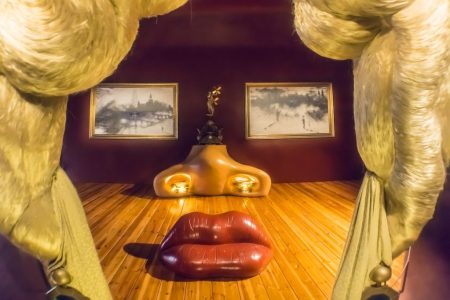Elisabela Larrea, an independent researcher and scholar of Macanese culture, held a talk on the history of patuá at the International Institute of Macau (IIM) last Friday, according to a report by Ponto Final.
Once widely spoken by the Eurasian community in Macao, patuá is an endangered Creole language that is primarily based on Portuguese, with linguistic influences from Cantonese, Malay and Sinhala.
The presentation, which was addressed to a Chinese audience and moderated by IIM’s António Monteiro, discussed the history of Macanese culture, as well as the origins of patuá.
The session also featured contributions from Angela Ramos and Mariana Pereira, who read excerpts of patuá folk songs and poetry from O Cantar De Macau, published by IIM.
The organisers noted that for many of the young people who joined the talk, it was their first time hearing patuá being spoken. According to IIM, such sessions can help to spread awareness of patuá among members of the community, as they “can intensify and attract interest in this language which is at risk of extinction.”
[See more: Macanese musician Gabriel strives to keep patuá alive with his new EP]
The event was jointly organised by IIM and the Macanese Culture Research Association, with funding from the Macau Foundation.
Larrea has contributed significantly to the preservation of patuá through her extensive work in the language, which encompasses theatre, short films, public talks and articles.
The following day, the eighth-generation Macanese took part in singing Christmas carols in patuá with the Macanesel choir, Coro Dóci Papiaçám di Macau, at the Cathedral Square.
In a report published by Lusa, Larrea was quoted as saying, “the choir is an excellent way to bring joy to people. Music can convey feelings and Macanese culture is based on joy, fun, and the spirit of being in a group.”
A similar performance was staged last year by the choir, which is an offshoot of Macao’s sole patuá theatre group. The group’s founder, Miguel Senna Fernandes, told Lusa that the reaction was positive, with “more people” appearing this year, including “many tourists.”
Founded in 1998, the Macanese choir went on a long hiatus in 2000 before reemerging in 2020.
The lecture and choral performance come just days before Macanese musician Delfino Azinheira Gabriel releases a new EP entitled Epifania on 20 December, featuring four songs in patuá.






